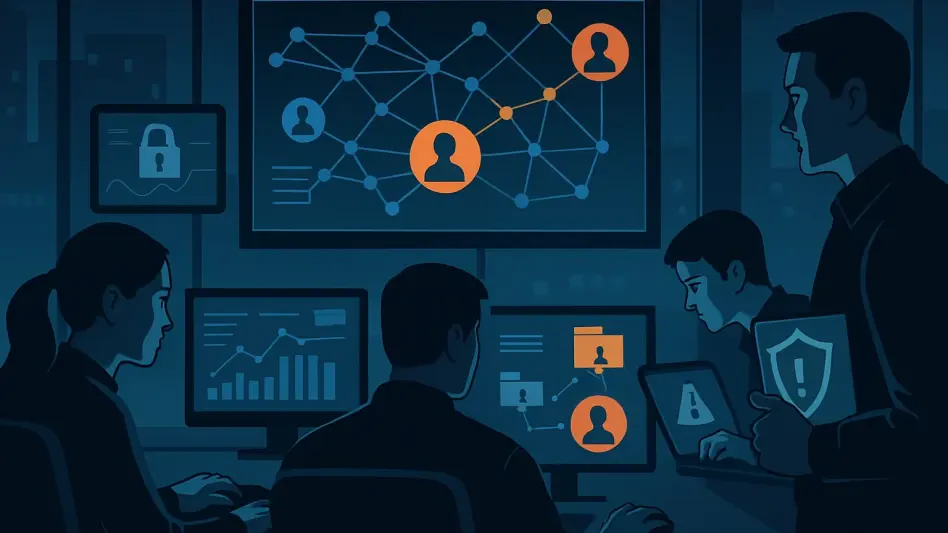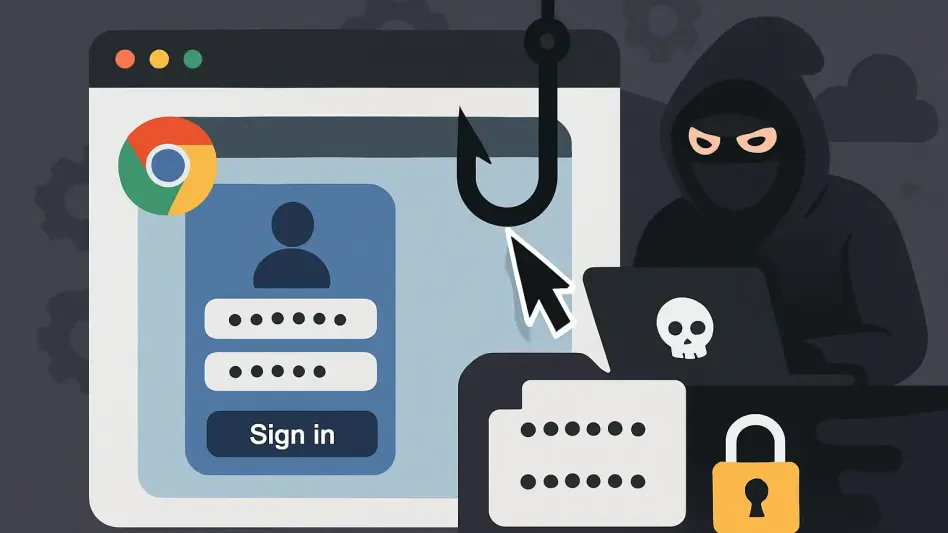Gaming has swiftly transitioned from the realm of physical cartridges and disks to fully integrated digital ecosystems, transforming the way we interact with games and making cybersecurity an essential focus for over 3 billion gamers worldwide. The flourishing gaming industry, valued at over $200 billion, is no longer just a playground for enthusiasts but a lucrative target for cybercriminals. As digital gaming assets like in-game items and payment information increase in value, the need for robust and comprehensive cybersecurity strategies has never been more pressing.
Understanding the Evolving Threat Landscape
Cybercriminals have honed their methods, shifting from simple password theft to more sophisticated attacks on gamers’ digital identities. Credential stuffing exemplifies one such advanced tactic, exploiting the common practice of password reuse. This method involves cybercriminals using previously stolen passwords from different services to gain unauthorized access to gaming accounts, exploiting the tendency of users to maintain the same password across multiple platforms.
Gaming platforms are particularly vulnerable due to their dual value; financial information and lucrative in-game items present attractive targets for cybercriminals. Gamers often underestimate the value of their accounts, not realizing that in-game items and virtual currencies can be as financially rewarding to hackers as real-world money. Phishing scams aimed at gamers have also become increasingly sophisticated, mimicking legitimate offers and promotions within the gaming world to trick users into revealing sensitive information. Typosquatting, where malicious websites are created with URLs that closely resemble trusted sites, is used to deceive even the most vigilant gamers into divulging their credentials.
Enhancing Password Security
In today’s digital gaming environment, basic password practices are insufficient to counter the sophisticated threats posed by cybercriminals. Hackers now possess advanced tools that can effortlessly crack weak passwords through brute force attacks. To resist these threats effectively, gamers must adopt stringent password security measures. Passwords need to be complex, combining elements such as uppercase letters, lowercase letters, numbers, and special characters. The increasing computing power necessitates longer passwords, ideally ranging from 12 to 16 characters, to resist brute force attacks effectively.
Gamers should also avoid using the same password for multiple accounts. Instead, each gaming account should have a unique password. Given the difficulty of remembering numerous complex passwords, using a reliable password manager is advisable. Password managers securely store and autofill passwords, ensuring each account is protected by a unique, strong string of characters without requiring the user to remember all of them. This significantly reduces the risk of credential stuffing attacks and enhances overall account security.
The Importance of Two-Factor Authentication
Two-factor authentication (2FA) adds a crucial layer of security beyond traditional password protection. By requiring a second form of verification, such as a code sent to a mobile device or generated by an authenticator app, 2FA ensures that even if a password is compromised, unauthorized access is significantly more difficult. Authenticator apps offer better protection compared to SMS-based verification, which can be compromised by SIM-swapping attacks. In such scenarios, hackers convince a victim’s mobile carrier to transfer the phone number to a SIM card under the hacker’s control, intercepting the 2FA codes.
Dedicated security tools like Valve’s Steam Guard and Blizzard’s Authenticator provide additional robust security measures specifically designed for gaming platforms. These tools often employ push notifications to approve login attempts, ensuring that any attempts to access an account are immediately brought to the user’s attention. By enabling 2FA on all gaming accounts, gamers can considerably enhance their security posture, making it more challenging for cybercriminals to gain unauthorized access.
Leveraging Hardware Security Keys
Hardware security keys, such as YubiKey or Google Titan, represent the pinnacle of account protection. These physical tokens work by authenticating both the user and the website, providing enterprise-level security against phishing attacks. Unlike traditional passwords and 2FA codes, hardware security keys use cryptographic techniques to ensure that users are connecting to legitimate websites, thus thwarting attempts by cybercriminals to intercept authentication codes. For gamers managing valuable accounts, such security measures are indispensable to ensure maximum protection.
These physical tokens follow protocols like FIDO2 and WebAuthn, which provide robust security without compromising convenience. When logging in, the user simply inserts their hardware key into their computer’s USB port or taps it against their NFC-enabled device, completing the authentication process within seconds. For professional gamers and those with high-value accounts containing significant digital assets, investing in hardware security keys offers unparalleled protection against even the most sophisticated cyber threats.
Secure Payment Methods
With digital transactions replacing physical purchases, safeguarding payment information is more critical than ever. The risks highlighted by the 2011 PlayStation Network breach, which compromised 77 million accounts, underscore the importance of not storing credit card information on gaming platforms indefinitely. Instead, gamers should opt to input their payment details each time they make a purchase and decline the option to save their card information on the platform.
Virtual credit cards offer a secure alternative by generating single-use card numbers or merchant-locked cards that restrict charges to specified vendors. This isolates the user’s financial information from the gaming platform, significantly reducing the risk of unauthorized transactions. Cryptocurrency transactions, while offering a certain degree of anonymity, are not suitable for everyone due to their complexity and the potential for irreversible transactions if errors occur. For a balance of security and convenience, gamers can consider using gift cards and platform-specific currencies. These options limit exposure to financial information and provide a secure way to fund in-game purchases.
Defending Against Social Engineering
Social engineering exploits the communal nature of gaming. Cybercriminals use various tactics to manipulate gamers into divulging sensitive information or performing actions that compromise their security. Voice chat, in-game messaging, and platforms like Discord serve as modern vectors for these attacks. Attackers build rapport with their targets, posing as friends or trusted members of the gaming community, before attempting to exploit them. To defend against such tactics, gamers should establish verification protocols with their friends. For example, confirming requests or unfamiliar communications through separate, known communication channels can help verify their legitimacy.
Fake gaming tournaments are another social engineering tactic wherein attackers create convincing setups to lure victims with the promise of prizes in exchange for personal information. Gamers should only register for tournaments through official channels or verified esports platforms to avoid falling prey to these scams. By maintaining a healthy skepticism and verifying the authenticity of seemingly legitimate requests and offers, gamers can protect themselves from falling victim to social engineering attacks.
Safe Practices for Third-Party Software
Third-party tools and modifications in gaming can introduce vulnerabilities. Gamers often use mods to enhance their gaming experience, but downloading these from untrustworthy sources can lead to malware infections. To minimize risks, gamers should download mods from reputable sites such as Steam Workshop or Nexus Mods, which have vetting processes to ensure the integrity of the content. Additionally, players should always scan downloaded files with a reliable antivirus program before installing them.
Streaming and recording software also poses potential security gaps due to their need for extensive system permissions. Obtaining these tools directly from developers’ official websites is recommended over third-party sites that may bundle malware. Furthermore, the increasing usage of VPNs among gamers for enhanced security, accessing region-specific content, and avoiding ISP throttling requires careful selection. Choosing a VPN with low latency, no bandwidth caps, and a no-logging policy is essential. VPNs using the WireGuard protocol provide optimal speeds while maintaining top-notch security, ensuring a seamless gaming experience without compromising on safety.
Recovery Planning Essentials
Even with the most stringent security measures in place, there is always a residual risk of a successful cyberattack. Therefore, having a recovery plan is crucial. Gamers should regularly back up their game data and account information to secure, offline storage solutions. This ensures that in the event of a data breach or ransomware attack, they can quickly restore their information and continue gaming with minimal disruption. Periodically reviewing and updating security settings, as well as staying informed about the latest cybersecurity threats, will further strengthen a gamer’s defensive posture.
Conclusion
The rapid transformation of gaming from physical to digital ecosystems has revolutionized the industry but also introduced significant cybersecurity challenges. As the gaming market continues to grow, the value of digital assets and personal information increases, making gamers prime targets for cybercriminals. By implementing comprehensive cybersecurity strategies, such as enhancing password security, adopting two-factor authentication, leveraging hardware security keys, using secure payment methods, defending against social engineering, and following safe practices for third-party software, gamers can better protect their digital assets and enjoy a safer gaming experience. It is imperative for both developers and gamers to prioritize cybersecurity and remain vigilant against evolving threats to ensure the security of the digital gaming landscape.







